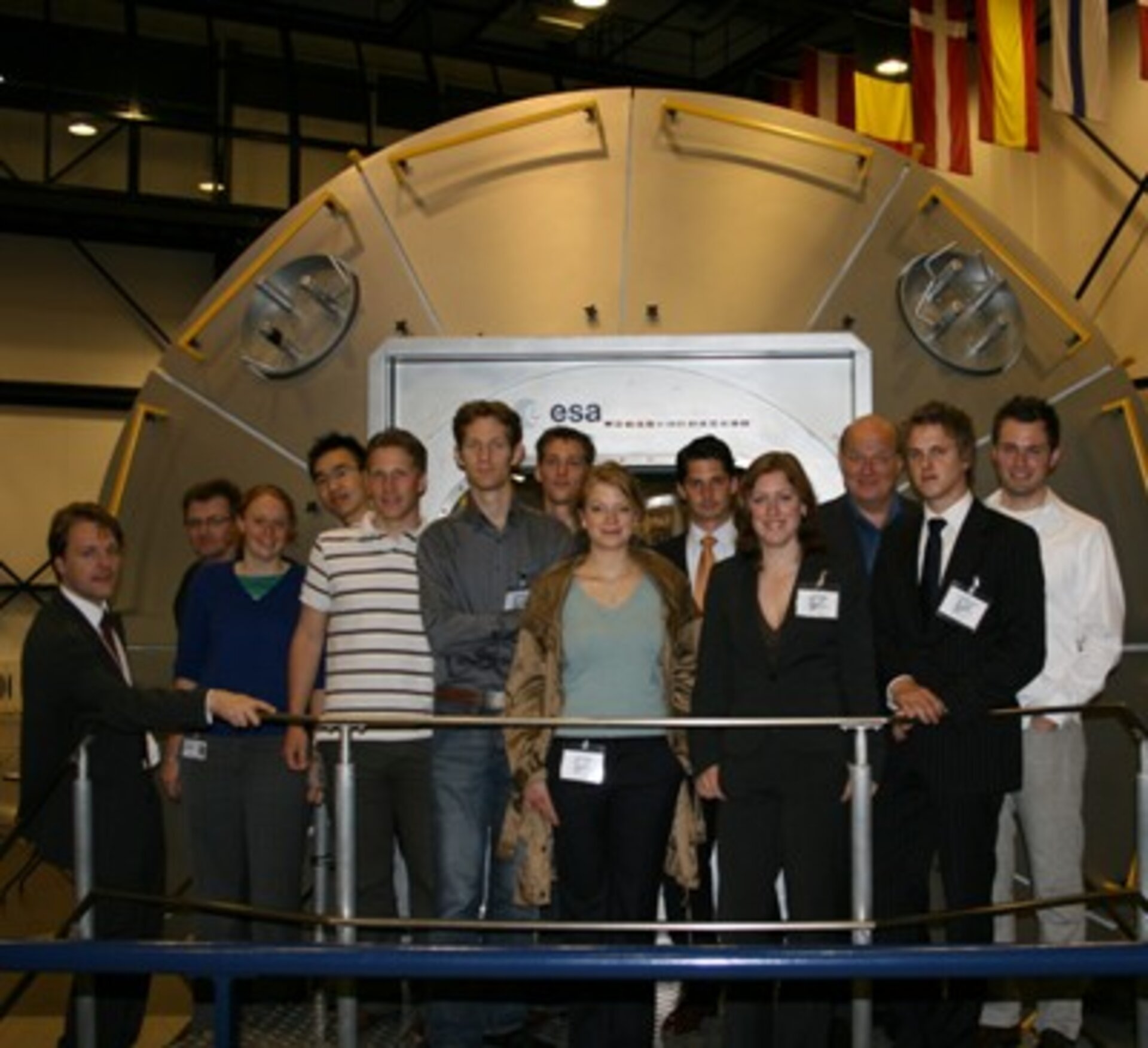Entrepreneurial Teams Seminar
Teams of engineering students from Delph University of Technology and business administration students from the Rotterdam School of Management have been taking part in a competition to find the best commercial technology transfer case. A one-day intensive Entrepreneurial Teams seminar was arranged last month by ESA’s Technology Transfer Programme Office.
"The objectives of the Entrepreneurial Teams Seminar are first of all, to introduce university students to the world of space exploitation, and the opportunity for spin-off of space technologies into non-space applications. Secondly, we want to give them a bit of the flavour of entrepreneurship," says Laura Holt, who organised the event at ESA’s Business Incubator, ESTEC, where currently 15 entrepreneurs are starting up businesses based upon spin-offs of ESA’s space technologies.
She added: "the seminar provides an opportunity for the students to get hands-on experience of the importance of the entrepreneurial team to success. Forming teams with students from business and technical backgrounds encourages the exchange of views and different ways of thinking".
To get the teams started, Niels Eldering from the ESA Business Incubator, Prof. Dr Ir. Han Brezet from Delph University of Technology (TU Delph) and Prof. Dr. Wim Hulsink from Erasmus University Rotterdam (RSM) shared their views in an opening session on the value of innovation in technology and how this can influence entrepreneurship. Throughout the day entrepreneurs from the start-up companies at ESA’s Business Incubator helped the students to move forward in a constructive direction within the limited time available.
"The start-ups really provide a great inspiration for the entrepreneurial minded student," noted one of the students. The event highlighted, through a practical technology transfer case, that by working in entrepreneurial teams they can come up with more innovative and viable ideas than they would do alone.
The teams came up with a variety of business proposals. One applied the Galileo system to the tracking of art work and another to the tracking of children. There was also a plan for the application of a harsh-environment camera.
"The most important lesson drawn from this day," noted Brendan Jansen op de Haar of the EUREOS board "is that future entrepreneurs don’t have to wait for their own eureka-moment, business opportunities can also be found through building teams of people".




